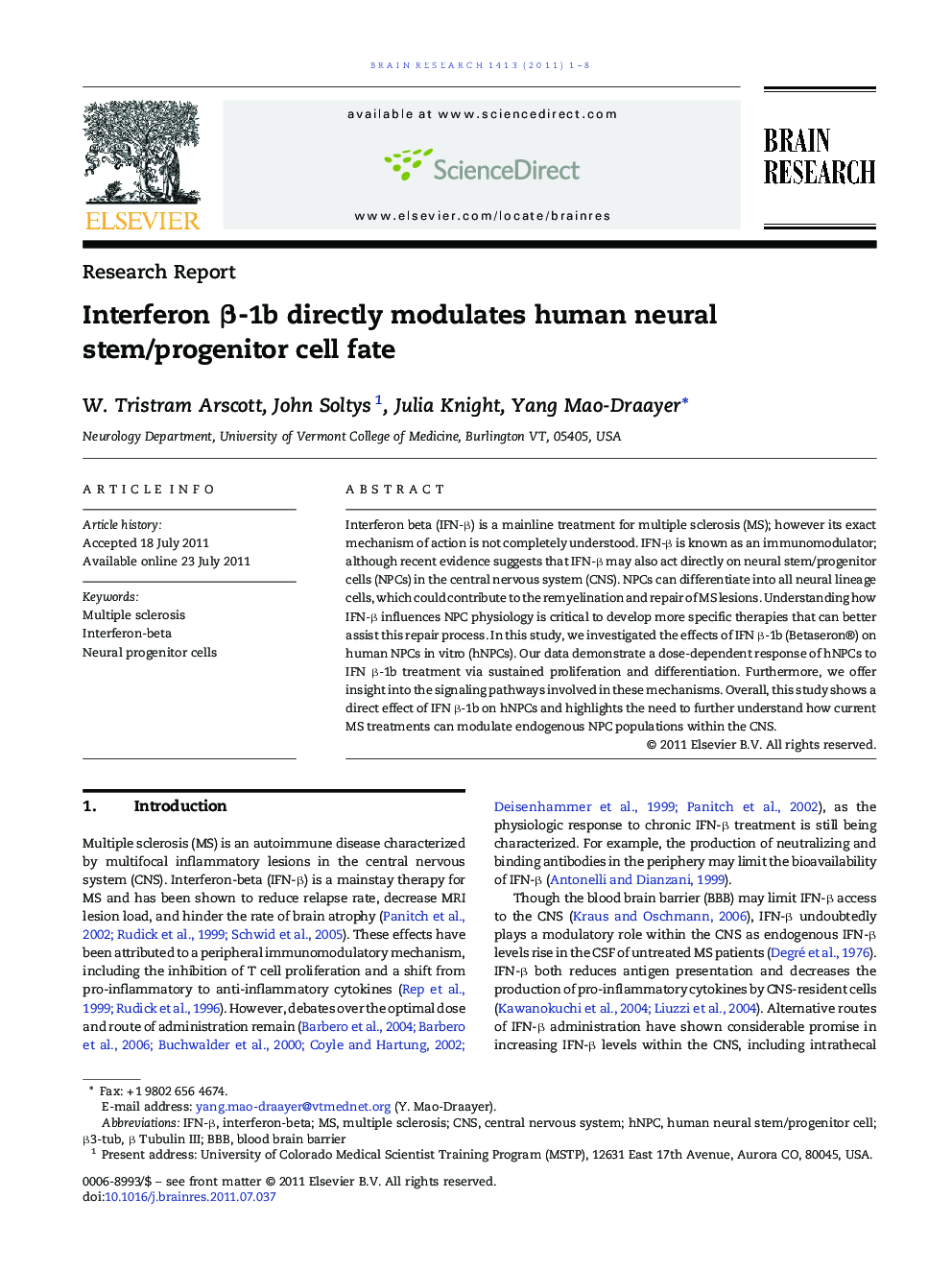| Article ID | Journal | Published Year | Pages | File Type |
|---|---|---|---|---|
| 6264742 | Brain Research | 2011 | 8 Pages |
Interferon beta (IFN-β) is a mainline treatment for multiple sclerosis (MS); however its exact mechanism of action is not completely understood. IFN-β is known as an immunomodulator; although recent evidence suggests that IFN-β may also act directly on neural stem/progenitor cells (NPCs) in the central nervous system (CNS). NPCs can differentiate into all neural lineage cells, which could contribute to the remyelination and repair of MS lesions. Understanding how IFN-β influences NPC physiology is critical to develop more specific therapies that can better assist this repair process. In this study, we investigated the effects of IFN β-1b (Betaseron®) on human NPCs in vitro (hNPCs). Our data demonstrate a dose-dependent response of hNPCs to IFN β-1b treatment via sustained proliferation and differentiation. Furthermore, we offer insight into the signaling pathways involved in these mechanisms. Overall, this study shows a direct effect of IFN β-1b on hNPCs and highlights the need to further understand how current MS treatments can modulate endogenous NPC populations within the CNS.
⺠Human neural stem/progenitor cells (hNPC) express the interferon alpha/beta receptor. ⺠IFN b-1b treatment sustains hNPC proliferation and differentiation in vitro. ⺠Several signaling molecules mediate the actions of IFN b-1b in hNPC.
